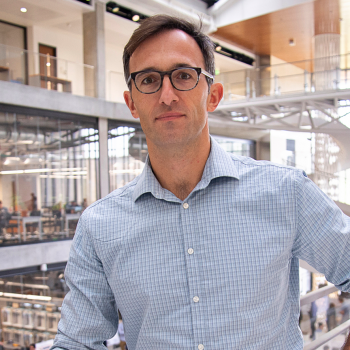MLE and the EM Algorithm for Log-Concave Mixtures: Minimax Results
Speaker:
Constantine Caramanis, (UT Austin)
Abstract:
The Expectation-Maximization (EM) algorithm is a widely used tool for computing the maximum likelihood estimator (MLE) in statistical inference with latent variables. Since the seminal work by Balakrishnan, Wainwright and Yu, much recent work has provided non-asymptotic convergence guarantees of the EM algorithm under various statistical and regularity assumptions. Yet many important questions have remained unresolved, particularly in the setting where the separation between parameters of different mixtures approaches the limit where sample-efficient parameter learning is possible.
We consider mixtures of log concave distributions in this critical SNR setting. We provide a novel analysis for understanding the performance of the EM algorithm, and prove several important (according to us, anyway!) new results. For the mixture of $K$ regressions, we show that as long as signal-to-noise ratio (SNR) is $\tilde{\Omega}(K)$, well-initialized EM converges to the true regression parameters. No previous results were available for this setting. For the mixture of $K$ Gaussians in $d$ dimensions, we show that EM converges as long as the separation of the means is $\Omega(\sqrt{log K})$, improving on the best known result of $\sqrt{K}$. Additionally, we show that in this regime, using EM, $O(K d / \epsilon^2)$ samples suffice to learn the mixture parameters, improving the best known result of $O(poly(K,d)$ sample complexity.
This represents joint work with Jeongyeol Kwon. It appeared in AISTATS '20, and COLT '20.
Bio:
Dr. Constantine Caramanis is a Professor and holds the William H. Hartwig Fellowship in Electrical Engineering in the Department of Electrical & Computer Engineering at The University of Texas at Austin.
Dr. Caramanis joined the UT Electrical and Computer Engineering department in the Fall of 2006. He received his A.B. in Mathematics from Harvard University, and his M.S. and Ph.D. in Electrical Engineering and Computer Science from MIT.
His research interests center on decision-making in large-scale complex systems, with a focus on learning and computation. Specifically, he is interested in robust and adaptable optimization, high dimensional statistics and machine learning, and applications to large-scale networks, including social networks, wireless networks, transportation networks, and energy networks. He also works on applications of machine learning and optimization to computer-aided design.
Event Type
- NISS Sponsored
Sponsor
Website
Location
Policy

